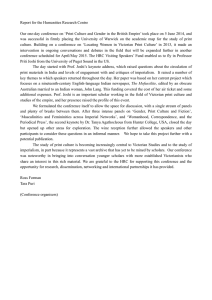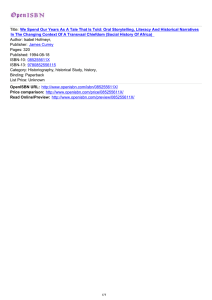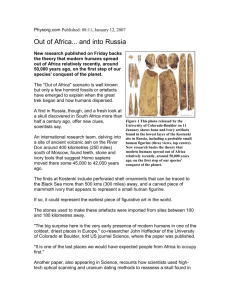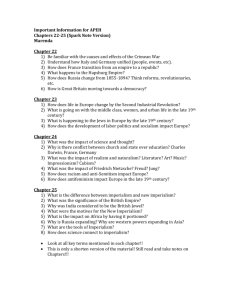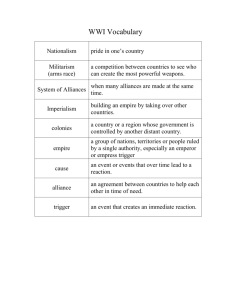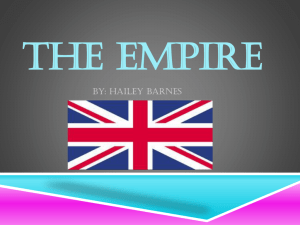!
advertisement
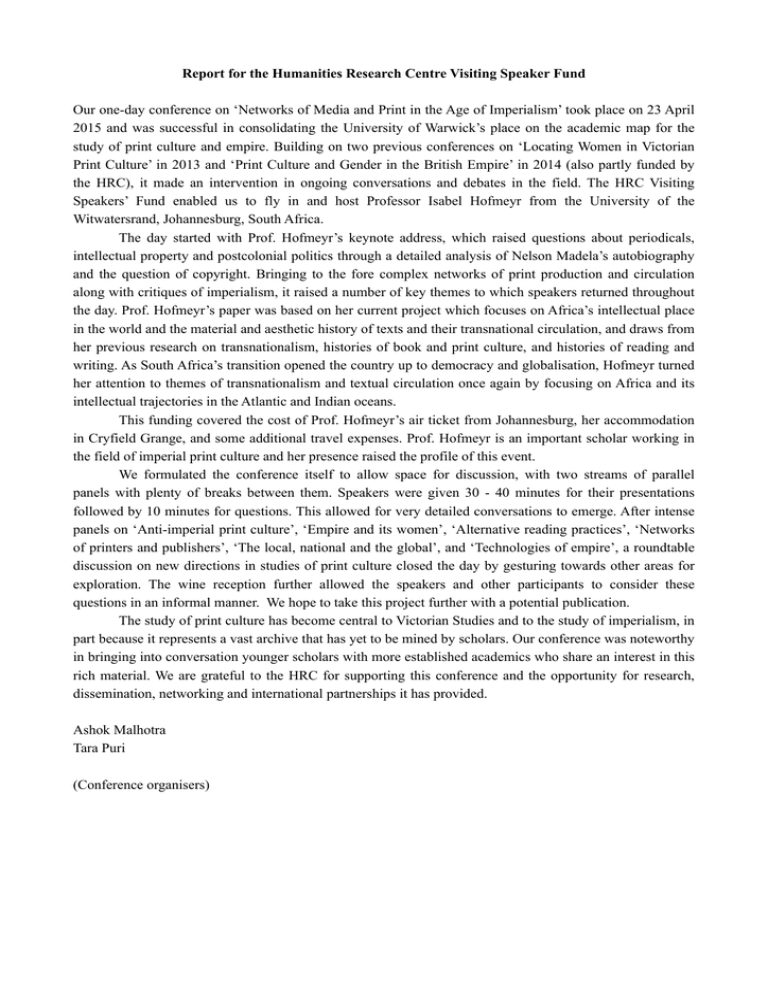
! Report for the Humanities Research Centre Visiting Speaker Fund Our one-day conference on ‘Networks of Media and Print in the Age of Imperialism’ took place on 23 April 2015 and was successful in consolidating the University of Warwick’s place on the academic map for the study of print culture and empire. Building on two previous conferences on ‘Locating Women in Victorian Print Culture’ in 2013 and ‘Print Culture and Gender in the British Empire’ in 2014 (also partly funded by the HRC), it made an intervention in ongoing conversations and debates in the field. The HRC Visiting Speakers’ Fund enabled us to fly in and host Professor Isabel Hofmeyr from the University of the Witwatersrand, Johannesburg, South Africa. The day started with Prof. Hofmeyr’s keynote address, which raised questions about periodicals, intellectual property and postcolonial politics through a detailed analysis of Nelson Madela’s autobiography and the question of copyright. Bringing to the fore complex networks of print production and circulation along with critiques of imperialism, it raised a number of key themes to which speakers returned throughout the day. Prof. Hofmeyr’s paper was based on her current project which focuses on Africa’s intellectual place in the world and the material and aesthetic history of texts and their transnational circulation, and draws from her previous research on transnationalism, histories of book and print culture, and histories of reading and writing. As South Africa’s transition opened the country up to democracy and globalisation, Hofmeyr turned her attention to themes of transnationalism and textual circulation once again by focusing on Africa and its intellectual trajectories in the Atlantic and Indian oceans. This funding covered the cost of Prof. Hofmeyr’s air ticket from Johannesburg, her accommodation in Cryfield Grange, and some additional travel expenses. Prof. Hofmeyr is an important scholar working in the field of imperial print culture and her presence raised the profile of this event. We formulated the conference itself to allow space for discussion, with two streams of parallel panels with plenty of breaks between them. Speakers were given 30 - 40 minutes for their presentations followed by 10 minutes for questions. This allowed for very detailed conversations to emerge. After intense panels on ‘Anti-imperial print culture’, ‘Empire and its women’, ‘Alternative reading practices’, ‘Networks of printers and publishers’, ‘The local, national and the global’, and ‘Technologies of empire’, a roundtable discussion on new directions in studies of print culture closed the day by gesturing towards other areas for exploration. The wine reception further allowed the speakers and other participants to consider these questions in an informal manner. We hope to take this project further with a potential publication. The study of print culture has become central to Victorian Studies and to the study of imperialism, in part because it represents a vast archive that has yet to be mined by scholars. Our conference was noteworthy in bringing into conversation younger scholars with more established academics who share an interest in this rich material. We are grateful to the HRC for supporting this conference and the opportunity for research, dissemination, networking and international partnerships it has provided. ! Ashok Malhotra Tara Puri ! (Conference organisers)
